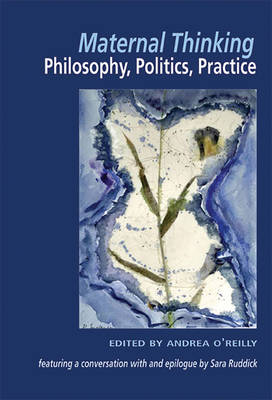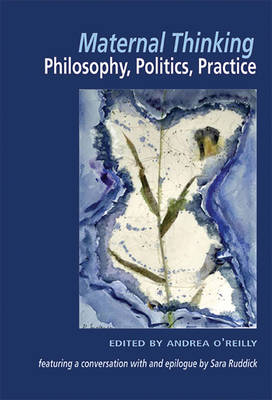
- Afhalen na 1 uur in een winkel met voorraad
- Gratis thuislevering in België vanaf € 30
- Ruim aanbod met 7 miljoen producten
- Afhalen na 1 uur in een winkel met voorraad
- Gratis thuislevering in België vanaf € 30
- Ruim aanbod met 7 miljoen producten
Zoeken
Maternal Thinking; Philosophy, Politics, Practice
Philosophy, Politics, Practice
Andrea O'Reilly
Paperback | Engels
€ 29,45
+ 58 punten
Omschrijving
The year 2009 marks twenty years since the publication of Sara Ruddick's monumental text Maternal Thinking: Toward a Politics of Peace, a book that is regarded, along with Adrienne Rich's Of Woman Born, as the most significant work in maternal scholarship and the new field of Motherhood Studies. What madeMaternal Thinking so life-changing and ground-breaking was that it foregrounded what all mothers know: motherwork is inherently and profoundly an intellectual activity and theorized the obvious: Mothers think. This volume, published to commemorate and celebrate the twentieth anniversary of the publication ofMaternal Thinking, explores the impact and influence this book has had on maternal scholarship and revisits what motherhood scholars regard as the pivotal insights of Ruddick's text: motherwork is a practice that gives rise to and is informed by "maternal thinking"; mothering, as a practice, is composed of and characterized by particular characteristics; this work is not defined by or reducible to gender; and maternal thinking makes possible a politics a peace. The volume includes 17 contributors from disciplines as diverse as anthropology, sociology, literature, philosophy, education, women's studies and psychology and features a conversation with and an epilogue by Sara Ruddick.
Specificaties
Betrokkenen
- Auteur(s):
- Uitgeverij:
Inhoud
- Aantal bladzijden:
- 276
- Taal:
- Engels
Eigenschappen
- Productcode (EAN):
- 9781550145168
- Verschijningsdatum:
- 1/10/2009
- Uitvoering:
- Paperback
- Formaat:
- Trade paperback (VS)
- Afmetingen:
- 152 mm x 226 mm
- Gewicht:
- 385 g

Alleen bij Standaard Boekhandel
+ 58 punten op je klantenkaart van Standaard Boekhandel
Beoordelingen
We publiceren alleen reviews die voldoen aan de voorwaarden voor reviews. Bekijk onze voorwaarden voor reviews.








